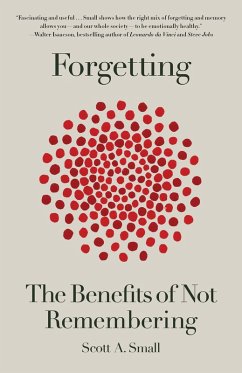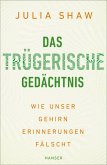A renowned neurologist explains why our routine forgetting--of names, dates, even house keys--is not a brain failure but actually one of our minds' most beneficial functions. Who wouldn't want a better memory? Dr. Scott Small has dedicated his career to understanding why memory fails us. As director of the Alzheimer's Disease Research Center at Columbia, he focuses largely on patients who experience pathological forgetting, and it is in contrast to their suffering that normal forgetting, which we experience all the time, every day, appears in sharp relief. Until recently, most everyone, memory scientists included, believed that forgetting served no purpose. But new research in psychology, neurobiology, medicine, and computer science tells a different story. As it turns out, forgetting is not a failure of our minds. It's not even a benign glitch. It is, in fact, good for us--a required function for our minds to work best. Forgetting benefits our cognitive and creative abilities, emotional well-being, and even our personal and societal health. As infuriating as a typical lapse can be, it's precisely what opens our minds up to making better decisions and experiencing joy, relationships, and artistic and spiritual flourishing. From studies of bonobos in the wild to visits with the iconic painter Jasper Johns and the renowned expert on decision-making Daniel Kahneman, Scott Small looks across disciplines to put new scientific findings about memory into illuminating context. The next time you forget where you left your keys, remember that a little forgetting does a lot of good.
Dieser Download kann aus rechtlichen Gründen nur mit Rechnungsadresse in A, B, BG, CY, CZ, D, DK, EW, E, FIN, F, GR, HR, H, IRL, I, LT, L, LR, M, NL, PL, P, R, S, SLO, SK ausgeliefert werden.


